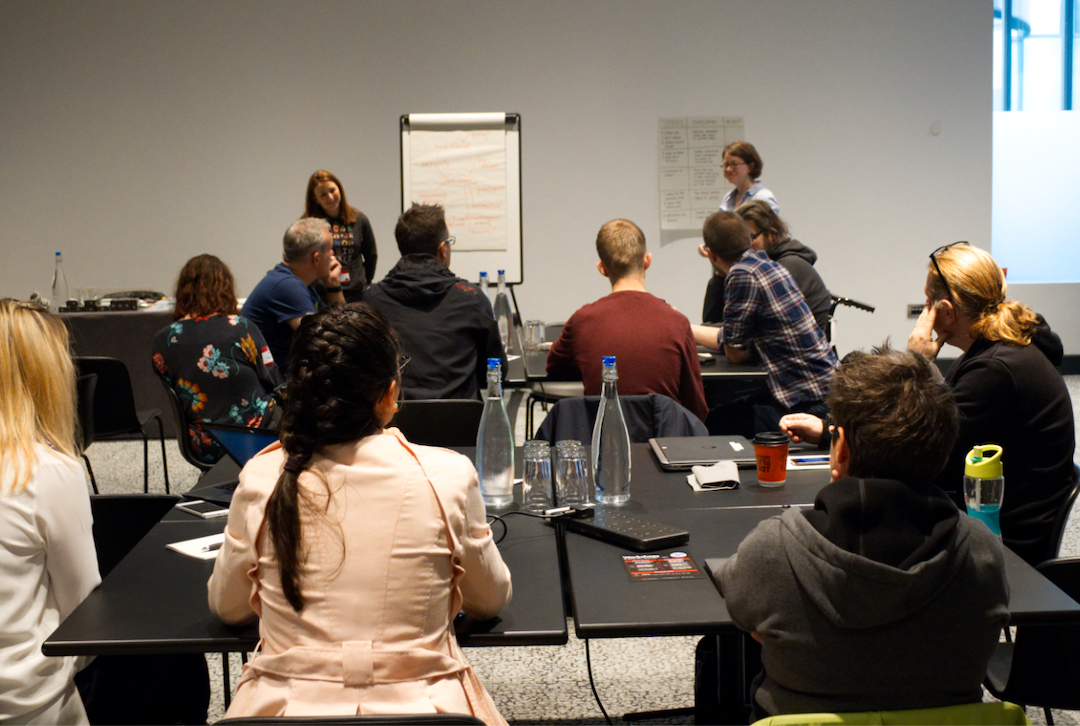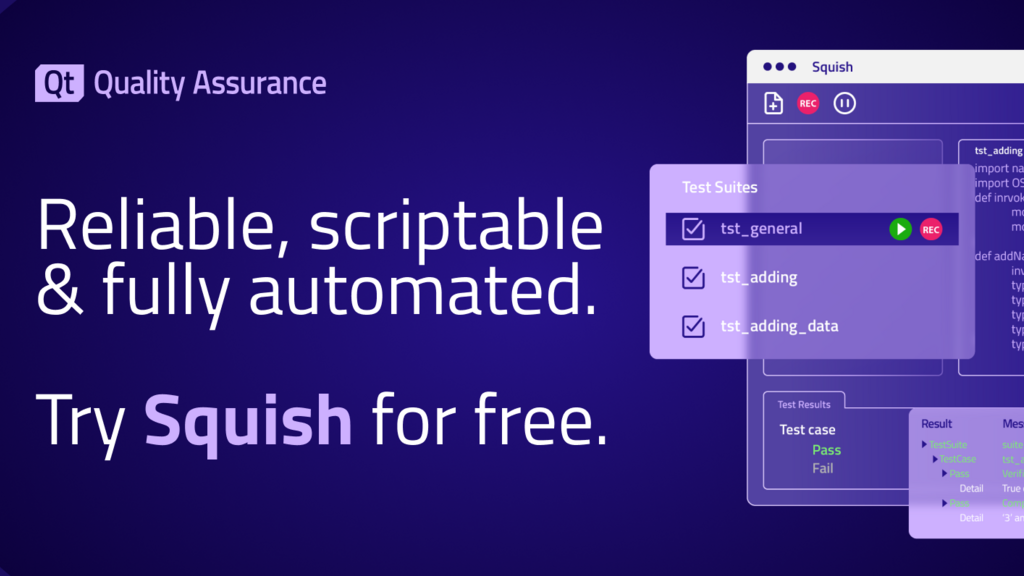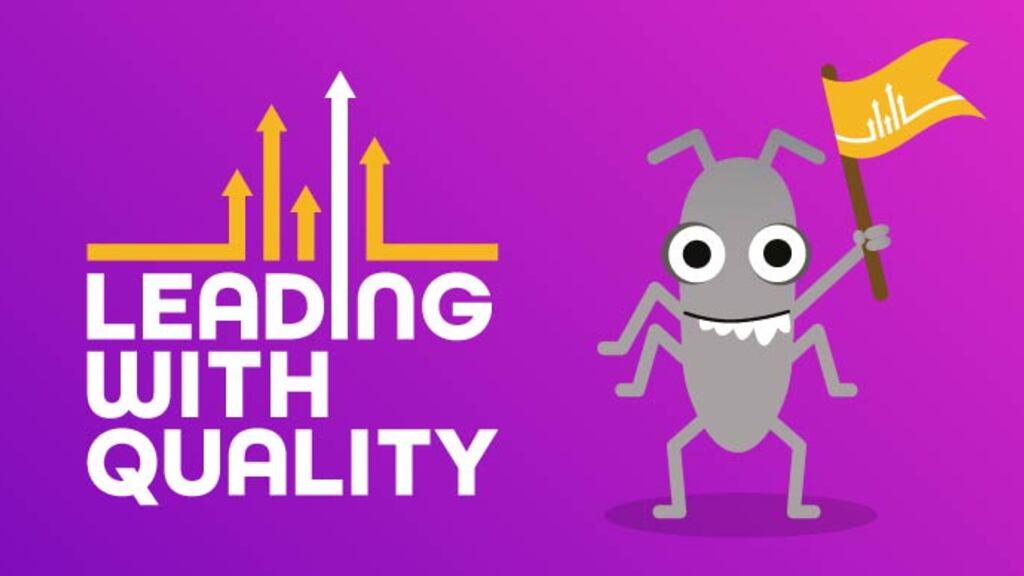Running a workshop can seem like an enormous undertaking, especially after attending a really enjoyable and engaging workshop. When you decide to run one, it can feel like a huge task to put it together, get the right materials and setup going, and then on top of that facilitate paying attendees throughout. It’s not a simple job, but, with the right outlook and planning, it doesn’t have to be a scary one. Karo Stoltzenburg and Tracey Baxter talk about their experience of running their first workshop, Exploratory Testing 101, at TestBash Manchester. This is their community story.
By Karo Stoltzenburg and Tracey Baxter
Exploratory Testing 101 was your first workshop together. Tracey, how did it all come about? How did you and Karo get to know each other?
Tracey: “It was indeed our first, but hopefully not our last! I’d love to do something else with Karo in the future. Exploratory Testing 101 came about when Dan Ashby asked Karo and I if we would be willing to run a workshop at TestBash Manchester. I was a little surprised to be asked and nervous at the prospect but the fact that I knew I wouldn’t be doing it alone was a comfort.
“Before running the workshop with Karo, we had briefly met at Software Testing Clinic in London and again at Leeds Testing Atelier. After we both agreed to do the workshop we had a number of Skype sessions, and those were great! We would bounce ideas off one another, and it became apparent that we both had the same desire to do the best we could so that the attendees came away with learnings that they could apply in their day to day jobs.”
Karo, how did your workshop at TestBash Manchester go?
Karo: “It was an absolute blast. We had the best attendees ever. They came with an open and inquisitive mind and loads of questions. There was a lot of active participation. People were happy to talk about their own experiences and question and reflect on the things they've learned in the workshop. Everybody contributed, which was great. It can be tricky if you have a person dominating and then others withdrawing, and we didn't see that happen at all. They also went full in on the exercises, having a lot of fun exploring, which was fantastic to see!“And from a setup and organisation point, I think this was a really smooth experience. Richard and Heather from Ministry of Testing were checking in on us a few times before, and on the day making sure we had all we needed and that we were good to go. Running this with Tracey was also really, really good. We hadn't done a workshop together before, but it felt very natural and fun. And having Dan Ashby in the room to help us with timings, keeping us on track and to offer feedback and advice throughout was incredibly helpful. And calming!”

Do you generally enjoy doing workshops? They are a bit unpredictable, right?
Karo: “Yes, that's true. If you do a talk, in a way, you are more in control. Less so in a workshop. It's interactive, anything can happen. There might be a question that just throws you, that you don't know the answer to! Shocking, right? But actually, I think that's part of the fun and what makes the experience so interesting and valuable to me. I always think of a workshop as a big collaboration, where we try to understand a topic a bit better, together.
“Of course, we as facilitators are there to guide the process so that we can reach different learning objectives and can provide useful models, theories, techniques along the way that help us understand the topic and discover new angles. But in the end, we're all exploring together and learning from each other, and that could go in any direction! It's that flexibility to respond to the needs, interests, and questions of the group that I think is important when running a workshop, and that I want to get better and better at.”
Tracey: “So true, workshops are unpredictable and I guess that’s one of the reasons I like running them. I don’t believe you can, or should, fully prepare for a workshop. As Karo says, anything can happen. Chances are you won’t know the knowledge or experience levels of your attendees prior to the event.
“Where possible it’s good to be guided somewhat by the attendees. For example, if a topic is generating good conversation or debate, then let’s keep that going rather than sticking rigidly to the planned timings. Likewise, if attendees are indicating an interest in a topic and it’s relevant then, if possible, try to spend at least some time on that topic. In fact, we did this at Exploratory Testing 101. We hadn’t originally planned to cover note-taking in any detail, however, during the workshop, the attendees were asking about it, so Karo and I managed to cut some exercises out and go over some note-taking approaches.”
So no sweat when there is a question you don't know the answer to?
Karo: “No, I think that's OK. I won't ever know everything, that's just life, it would be boring otherwise. It's absolutely OK to admit not knowing something, it's actually incredibly helpful for your own learning process and also encouraging for others, and just honest. Honesty and transparency are things I value quite a lot.
“Luckily, when I don’t know something, I'm not completely lost. I'm a tester! I have problem solving and analytical skills, I'm curious and experienced in dealing with unknowns, so I can use that to explore the question. And in a workshop, there is a room full of people who can help me with that, who can provide their own great input, their experience and angles. We learn from each other in a workshop, and that's just smashing.”
Tracey: “Also, the thing with exploratory testing is often there isn’t a right or wrong answer. I believe exploratory testing is quite a personal thing, it’s your thoughts and heuristics that you’ve built up as a tester that guides you. For me, it’s definitely healthy to hear other opinions and read as many resources as possible, but form your own opinion, don’t cut and paste those of others.”
What did you like the most about running the workshop?
Tracey: “Maybe slightly corny sounding, but the thing I enjoyed most was watching the attendees learn. Hearing their opinions put across with such passion and watching them really getting stuck into the exercises. Knowing that the attendees are getting something tangible out of the workshop really was the best part. Otherwise, why do it, right?”
Karo: “Yes, same here. Seeing the attendees having fun and learning and taking things away to share and use back home is incredibly precious. And I have to say the topic itself; diving into exploratory testing for a few hours, seeing all the creativity around the room, crazy test ideas flying around, looking at risk discovery and getting excited to discuss what’s important for the user and for us to focus on in testing, that’s just fantastic. It creates so much energy, is inspiring and empowering and, from my experience as a tester, just works and can make such a positive impact when working on a product, it’s great.”

And any moments where you panicked?
Karo: “Not panicked, but I had quite a “doh!” moment. Heather came in just before the workshop, being the lovely person she is, looking after us and checking if we got everything we'd need. And I thought we were fine, but then she added "Do you guys have the wifi password?" and I just stared at her. I completely forgot about that, and of course, we had an exercise later on where we would need wifi. It's really golden to have people who watch out for you. And as a lesson learned; add this to the checklist for the next time, because "wifi password" wasn't on mine.”
Tracey: “Not as such. It took me a little while to get over my initial nerves, but the atmosphere in the room was warm and inviting. Having Karo as a co-host was fabulous. Just knowing that she was there for me settled my nerves as well. Plus, there were some familiar faces as attendees and I knew they all wanted Karo and I to do well.”
You both were mentioning the exercises of the workshop. What were some of the exercises?
Tracey: “The first exercise was split into two rounds and the objective was to explore the venue, The Lowry. During round one of the exercises, the attendees were given a script to follow which directed them to different points of interest around the venue. The attendees were fabulous as after this exercise they were asking lots of questions about the script, picking up on ambiguities in the script, what was the purpose and so on. They were testing the test script!
“The second round saw the attendees carry out exploratory testing of the venue, following a test charter. It was fascinating to see the contrast between the first and second rounds. The main difference I observed was that the attendees were so upbeat and excited after round two and had discovered lots of interesting things and also some risks! It was a great way for the attendees to try out the different approaches and compare.”
Karo: “It really showed the value of exploratory testing in action, as Tracey said, with the test script, a lot of focus was spent on the script, its ambiguities, flaws, and limitations. With the charter, all focus was on the actual thing under test, and after the exercise, the attendees could present a list of issues found, open questions, concerns and ideas, and suggestions for improvement. It also showed how the testers felt energized and took responsibility for their testing, suggesting areas that could do with more testing. Powerful thing, this exploratory testing!”
How did you both prep for this workshop?
Tracey: “We started off with the lesson plans from the Exploratory Testing 101 sessions that had been run previously. Karo and I had a call to discuss our thoughts on the existing lesson plan and what changes we wanted to make. We both wanted to bring our own perspectives to the workshop and have it flow in a way that would we thought would be best for the attendees.
“After our initial discussion, we arranged a call with Kim Knup and Claire Reckless as they had run Exploratory Testing 101 at London Tester Gathering Workshops earlier in the year. Speaking to Kim and Claire was great as we were able to benefit from their experience in running the same workshop, get some tips and pointers. We had a number of Skype sessions in the run up to TestBash Manchester, tweaking parts here and there.
"Our final call was with Dan Ashby where we ran through the lesson plan we had put together and got some great feedback and input. Even prepping for the workshop was enjoyable. You learn so much by talking to other testers, and even more when you’re trying to pull together a workshop. One of the best ways to learn is to teach!”
Any general advice for people who want to learn more about exploratory testing?
Karo: “There is a lot of great material out there that can help you get more into exploratory testing. We’ve put a list of resources together on the Club that can be helpful as a starting point, and to get some inspiration. There might be meetups in your area, like the ones from Ministry of Testing or the Software Testing Clinic, that offer events around exploratory testing, and software testing conferences who offer workshops like ours.
“And then bring exploratory testing actively back to your work and practice. Reserve time for yourself regularly to do exploratory charters. Pair on charters with a fellow tester or developer and debrief on the experience. Challenge yourself to ask about risks, to think about different use cases and personas, use heuristics to come up with crazy test ideas, with aspects you haven’t thought of before. Reflect on how the sessions went, what you learned, what worked well for you, and where you struggled, where the values and risks are. Iterate and reflect on all those regularly. But most importantly, have fun and feel empowered to become the best tester you can be!”
Tracey: “As Karo said, there are many resources on exploratory testing available online. My advice would be to experiment with exploratory testing. Practice identifying risks, then from those risks try to come up with charters to explore those risks further. Try different techniques with note-taking and time management etc. Pair with other testers and see how they approach exploratory testing.
“Whilst you are exploratory testing, why not try saying out loud what you are doing and why (on your own, may not go down well in an office 😊) be explicit in your thought process. In my experience, it’s very difficult to be disciplined when exploratory testing. Disciplined in terms of time, depth and breadth of testing and the scope. Whilst there are a lot of resources online to help, I believe nothing is more effective that practice. Test, Reflect, Learn.”
What's next for both of you?
Tracey: “In 2019, myself and Del Dewar plan on bringing the Software Testing Clinic to Edinburgh! We wrapped up the first season of the Software Testing Clinic in Glasgow earlier this year. The clinics really took off in Glasgow and we were delighted with the response. After a discussion, Del and I thought that it would be beneficial to run it in Edinburgh rather than running the same lesson plans over again in Glasgow. Thankfully Richard Paterson keeps the Glasgow group running as a Ministry of Testing meetup, which is great as it keeps the conversations and learning going along with maintaining and building a strong test community in Glasgow.”
Karo: “I’m working on an article for the Dojo about note taking, a topic that came up in the workshop, and which I believe can be a highly useful skill and habit for testers. Then Mark Bunce and I will be wrapping up the first season of the Software Testing Clinic in Cambridge. We have three more sessions to go in the new year, and it’s been really wonderful so far.”
Develop And Submit Your Own Workshop Idea
If you’re interested in learning how to run a workshop, or want feedback on one you’re developing, visit The Club forum. The testing community is extremely supportive and helpful on The Club and you can give back too. Get ideas, give ideas, improve yours and other folks workshops.
When your workshop is ready, be brave and submit it to Ministry of Testing’s Continuous Call For Papers. Ministry of Testing is always looking for new workshop facilitators and new ways to help the testing community actively learn new skills and knowledge. Even if you are not ready to put a workshop together, be part of the conversation and help someone give their best by interacting with them on The Club.
Author Bios
Karo Stoltzenburg is currently happy working as a Senior Test Engineer at Linguamatics. She loves that testing is such a diverse, creative, collaborative and challenging activity and channels her urge to discuss and share anything testing as a co-organizer of the Ministry of Testing Meetup group and host of the Software Testing Clinic in Cambridge and through her blog. You can find and engage with Karo on Twitter: @karostol
Tracey Baxter is currently working with NHS Education for Scotland as Principal Lead of Digital Delivery. Tracey has been a software tester for fifteen years. During that time she has specialised in the testing of clinical software including Patient Administration Systems (PAS), Electronic Patient Record Systems (EPR), Clinical Decision Support and Primary Care software in the UK public sector.
She is passionate about testing and delivering quality solutions that provide value to its users. You can get in touch with Tracey via Twitter @tbaxter78




